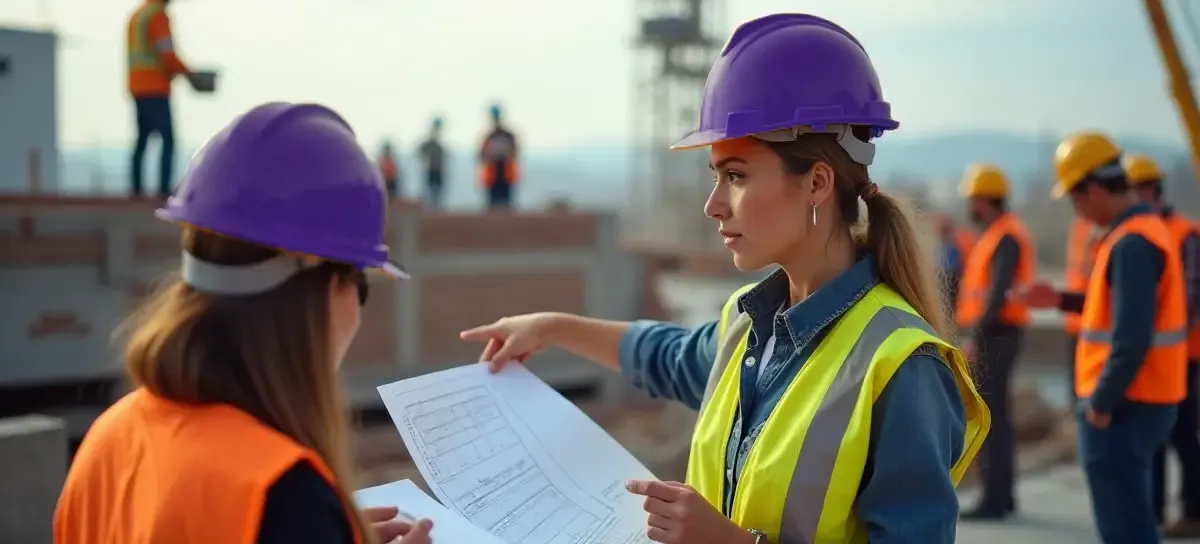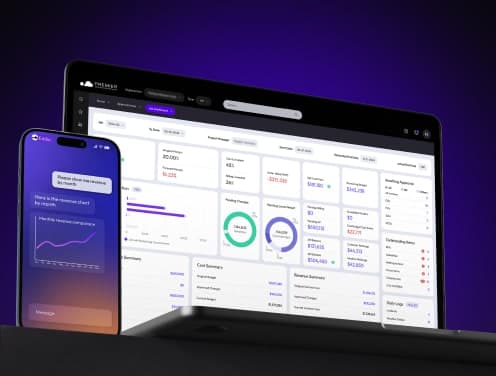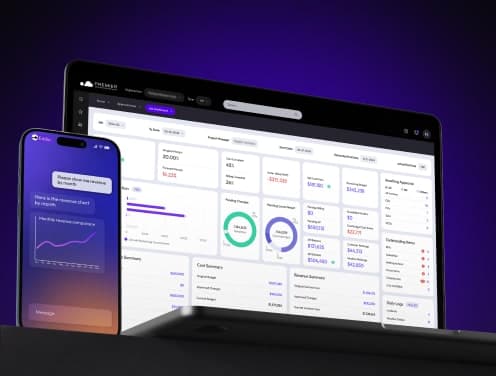
Construction Management vs Project Management: Key Differences Explained
Managing complex building projects often blurs the lines between construction management and project management. These roles aim to deliver successful outcomes but demand unique skill sets and responsibilities. Even industry veterans find it challenging to determine where one role ends and the other begins.
The differences between construction management and project management span from daily operations to leadership approaches. This piece will help clarify these roles, whether you're evaluating construction management software solutions or exploring career options in either field. A clear understanding of these differences will give you the ability to choose a path that arranges with your career goals and expertise.
Daily Operations Comparison
Let's head over to the daily operations of both roles to see how they differ in practice. The construction industry's complexity needs distinct yet complementary approaches from these professionals.
Construction Manager's Typical Day
Construction managers are skilled craftsmen who spend most of their time on-site to oversee daily construction activities. Their day starts at dawn with immediate construction challenges and resource allocation. They make sure materials arrive on time, tools are ready, and resources go where they should.
They spend much of their day checking work progress, managing subcontractors, and keeping safety protocols in place. Statistics show that over a quarter of projects are delivered more than 250 days late. This makes well-hosted construction management a vital part of timely delivery.
Project Manager's Daily Tasks
Project managers split their time between office work and site visits with wider responsibilities. Their day involves tracking project progress, working with stakeholders, and solving emerging issues. They build and update detailed project schedules, watch budgets, and keep clients informed regularly.
Here's what a typical project manager's daily schedule has:
- Morning: Review budgets and regulatory compliance
- Mid-day: Client meetings and team communications
- Afternoon: Site visits and progress assessments
- Evening: Report preparation and next-day planning
Key Operational Differences
The main difference lies in their operational focus and authority levels. Construction managers report to project managers in a clear chain of command. Several key differences shape their daily operations:
Construction Manager
- Site-focused operations
- Hands-on trade expertise
- Daily construction tasks
- Resource allocation
Project Manager
- Project-wide oversight
- High-level management
- Strategic planning
- Budget control
Construction managers excel at solving immediate construction problems and managing on-site personnel. Project managers keep a broader view and make sure everything arranges with the client's goals. The project starts with project managers on board. This gives them a detailed understanding of client objectives. Construction managers usually join when construction begins.
Leadership and Team Management

Leadership in construction projects needs a good grasp of team dynamics and authority structures. Let's look at how construction and project management take different paths in their leadership styles.
Team Structure and Hierarchy
The construction industry follows a clear chain of command. A project manager oversees the construction manager's work, which creates a well-laid-out reporting system. This setup works well because construction managers handle site operations while project managers keep the whole project on track.
The team structure typically has:
- C-level executives setting overall strategy
- Project managers overseeing entire projects
- Construction managers directing on-site operations
- Superintendents managing daily contractor activities
Communication Protocols
Communication stands as the biggest challenge in projects with multiple stakeholders. Our teams use formal communication protocols that define:
- Daily Updates
- Construction Manager: Site progress reports
- Project Manager: Stakeholder briefings
- Decision Flow
- Construction Manager: Team-specific directives
- Project Manager: Project-wide policies
- Documentation
- Construction Manager: Changes in specifications
- Project Manager: Overall project changes
Decision-Making Authority
Each role comes with its own decision-making power. Construction managers have vital authority on-site. They directly shape daily labor activities and safety practices. Project managers, on the other hand, handle broader administrative tasks and manage stakeholder expectations.
Leadership success in both roles depends heavily on style. Supportive and charismatic leadership styles boost construction productivity best. These approaches help leaders:
- Delegate tasks effectively
- Transform team attitudes
- Inspire better performance
- Include team members in decision-making
Democratic leadership works best at the executive level, where leaders focus on strategic issues. This shared approach brings diverse views together while keeping authority lines clear.
Both construction and project managers can create an environment where teams feel valued and motivated to excel by following these leadership structures properly.
Project Lifecycle Involvement
Looking at the project lifecycle shows substantial differences between construction management and project management roles based on timing and involvement. Understanding these differences is vital to project success.
Pre-Construction Phase
Project managers lead during pre-construction and join at the project's inception. They oversee significant activities like design development, budgeting, and contractor selection. Our work with Design-Bid-Build (DBB) setups shows that project managers retain control from pre-construction through post-construction stages.
Construction managers play a smaller role during this phase. They help with constructability reviews and preliminary budgeting. This changes in Construction Manager at Risk (CMAR) projects where construction managers get more authority and responsibility.
Construction Phase
Both roles come into play during active construction but with different focuses. Construction managers take care of:
- Overseeing specialized contractors
- Coordinating construction processes
- Managing day-to-day field operations
- Ensuring proper material and equipment availability
Project managers keep an eye on the "big picture" scenarios. They handle overall project coordination, financial management, and line up with project objectives. Project managers talk directly with clients while construction managers lead their teams in the field.
Post-Construction Responsibilities
The roles become even more distinct during the post-construction phase. Project managers stay involved through:
Responsibility Areas:
- Final Inspections
- Project Manager: Overall approval
- Construction Manager: Technical verification
- Documentation
- Project Manager: Complete project files
- Construction Manager: Construction records
- Client Handover
- Project Manager: Primary responsibility
- Construction Manager: Supporting role
- Warranty Period
- Project Manager: Oversight
- Construction Manager: Technical support
Construction managers focus on completing punch list items and finalizing construction documentation. Project managers handle the broader aspects of project closure, including final client approvals and financial reconciliation.
Smaller projects sometimes have construction managers handling both roles. This dual responsibility needs proper compensation. This setup works best when someone has both technical expertise and high-level management skills.
Risk and Compliance Management
Safety and compliance are the foundations of successful construction projects. Construction managers and project managers have vital but different roles in risk management. Understanding these differences is significant for project success.
Safety Protocol Oversight
Construction managers lead daily safety operations. Each worksite needs a full risk assessment since every project has unique hazards. Our safety approach has:
- Regular safety meetings and toolbox talks
- Mobile incident reporting systems
- Performance-related safety bonuses
- Equipment inspection protocols
Project managers have a broader safety oversight role. They handle high-level safety planning and create policies that work.
Regulatory Compliance
These roles are different in their approach to regulatory compliance. Project managers work on detailed compliance strategies that cover multiple categories:
Compliance Type
- Regulatory
- Project Manager: Overall project adherence
- Construction Manager: Site-specific compliance
- Contractual
- Project Manager: Client agreements
- Construction Manager: Subcontractor management
- Quality
- Project Manager: System-wide standards
- Construction Manager: Daily quality checks
Construction managers focus on implementing these requirements at the site. They make sure the project adheres to all relevant regulations and codes while meeting schedule and budget targets.
Quality Control Systems
Quality control is a vital area where both roles intersect but have distinct responsibilities. Our quality control process uses systematic procedures to ensure construction activities meet predetermined requirements. Construction managers focus on:
Quality control helps manage risk by spotting potential issues early. Project managers oversee the broader quality management system. Construction managers verify the quality of ongoing work.
Supervisors verify work while quality assurance managers provide documentation and knowledge. This collaborative effort helps reduce revisions and keep projects on schedule.
Construction managers must act proactively instead of waiting for problems. They conduct regular inspections during construction phases and keep detailed records of all quality control activities.
Performance Metrics and KPIs
Success measurement in construction demands deep knowledge of performance metrics. Construction management and project management teams use different key performance indicators (KPIs) to assess progress and achievements.
Construction Management Metrics
Construction managers concentrate on site-specific metrics that affect daily operations. The most common KPIs in construction center around financial targets, such as cost, cash flow, and profit. These critical indicators need tracking:
- Labor productivity rates
- Material waste reduction
- Equipment usage
- Safety incident frequency
- Quality control pass rates
Construction KPIs need to be clear, meaningful, and accepted by all stakeholders before project kickoff. These KPIs help contractors understand their business health better, especially during market uncertainty.
Project Management Success Factors
Project management achievements depend on broader performance measures to assess management effectiveness and track strategic plans. The most useful project management KPIs consist of the following success factors and their measurement focuses:
- ROI - Financial returns
- Productivity - Resource efficiency
- Cycle Time - Schedule performance
- Customer Satisfaction - Project outcomes
- Strategic Alignment - Business goals
Project managers must grasp and communicate the mechanisms behind project management processes. Smart project managers use KPIs as both performance tracking and motivation tools.
Evaluation Methods
A systematic approach works best when assessing construction and project management performance. Performance measurement helps teams understand how their decisions lead to success or failure. The evaluation process has these steps:
Starting with a few KPIs makes sense to avoid information overload. Too many metrics can weaken focus and results. Pairing operational KPIs with performance data lets teams make fact-based choices instead of guessing.
Regular assessments point out areas needing improvement. The best metrics are measurable, reliable, consistent, and budget-friendly. This evidence-based approach benefits both construction and project management results.
Professional Growth and Compensation

Learning about career advancement in construction reveals interesting pay trends and room for growth. The data shows clear differences in earning potential between various roles.
Salary Ranges and Benefits
Pay varies based on experience and specialization. Recent data shows that construction managers earn between $98,520 and $168,900 annually. Project managers can expect salaries ranging from $103,479 to $136,729.
The difference in pay becomes clearer with experience and certifications. Project managers often earn higher salaries because they handle responsibilities throughout multiple project stages. Here's what the market typically shows:
Position Level
- Entry Level
- Construction Manager: $75,000
- Project Manager: $85,000
- Mid-Career
- Construction Manager: $133,887
- Project Manager: $119,052
- Senior Level
- Construction Manager: $168,900
- Project Manager: $155,899
Industry Recognition
Professional certifications make a big difference in career advancement. The construction industry values several key certifications:
- Construction Management Certifications:
- Certified Construction Manager (CCM)
- Construction Manager in Training (CMIT)
- Certified Professional Constructor (CPC)
The CCM certification needs renewal every three years with a $215 fee. This shows a steadfast dedication to professional growth.
Professional Development Opportunities
Both roles offer unique paths for growth. Construction management professionals benefit from CMAA's complete education programs. Project managers often go for PMI certifications that are recognized across industries.
Ongoing education plays a vital role. AGC's Project Manager Development Program (PMDP) gives specialized training to early-career professionals and teaches essential skills for project success. This nationally recognized program has five courses that lead to a certificate of completion.
The construction sector's rise means you need to keep learning. Professionals who get certifications often move into higher-level positions and improve their earning potential. The industry values people who know both construction and project management because this combination creates more career opportunities.
Professional development goes beyond just certifications. A mix of hands-on experience and formal education creates the most successful career paths. Projects are getting more complex, and there's a growing need for professionals who understand both construction management and project management principles.
Comparison
Main Focus
- Construction Management: Site-specific operations and daily construction work
- Project Management: Overall project oversight and strategic planning
Daily Location
- Construction Management: We work mostly on-site
- Project Management: Time split between office and site visits
Typical Tasks
- Construction Management:
- Oversees daily construction work
- Manages subcontractors
- Allocates resources
- Implements safety protocols
- Performs quality control
- Project Management:
- Tracks project progress
- Works with stakeholders
- Monitors budget
- Communicates with clients
- Plans strategy
Project Phase Involvement
- Construction Management:
- Limited work before construction
- Heavy involvement during building phase
- Technical support after completion
- Project Management:
- Handles project from start to finish
- Oversees construction phase
- Leads post-construction work
Authority Level
- Construction Management: Reports to Project Manager with site authority
- Project Management: Broader administrative power over project scope
Communication Role
- Construction Management:
- Creates site progress reports
- Gives team directions
- Updates construction specs
- Project Management:
- Briefs stakeholders
- Sets project policies
- Manages project changes
Safety & Compliance
- Construction Management:
- Runs daily safety operations
- Ensures site compliance
- Implements safety measures
- Project Management:
- Creates safety plans
- Develops compliance strategy
- Creates safety policies
Salary Range (Annual)
- Construction Management: $98,520 - $168,900
- Project Management: $103,479 - $136,729
Key Certifications
- Construction Management:
- Certified Construction Manager (CCM)
- Construction Manager in Training (CMIT)
- Certified Professional Constructor (CPC)
- Project Management:
- PMI certifications
Conclusion
Our detailed analysis shows clear differences between construction management and project management roles. These positions are crucial for successful project delivery. Construction managers excel at hands-on site operations, safety implementation, and daily resource management. Project managers focus on strategic planning, stakeholder relationships, and overall project success.
The salary ranges highlight these roles' unique responsibilities. Construction managers typically earn between $98,520 and $168,900 per year. Project managers' salaries range from $103,479 to $136,729. Both careers offer excellent growth opportunities through professional certifications and additional education.
Your career choice depends on your strengths and interests. Construction management fits professionals who love dynamic site environments and direct oversight of building processes. Project management attracts people who excel at strategic planning and high-level stakeholder involvement.
Professionals succeed in either role when they commit to continuous learning and adapt to industry changes. Our experience shows that professionals make better career decisions when they understand these different yet complementary roles. Organizations build stronger project teams with this knowledge.





















